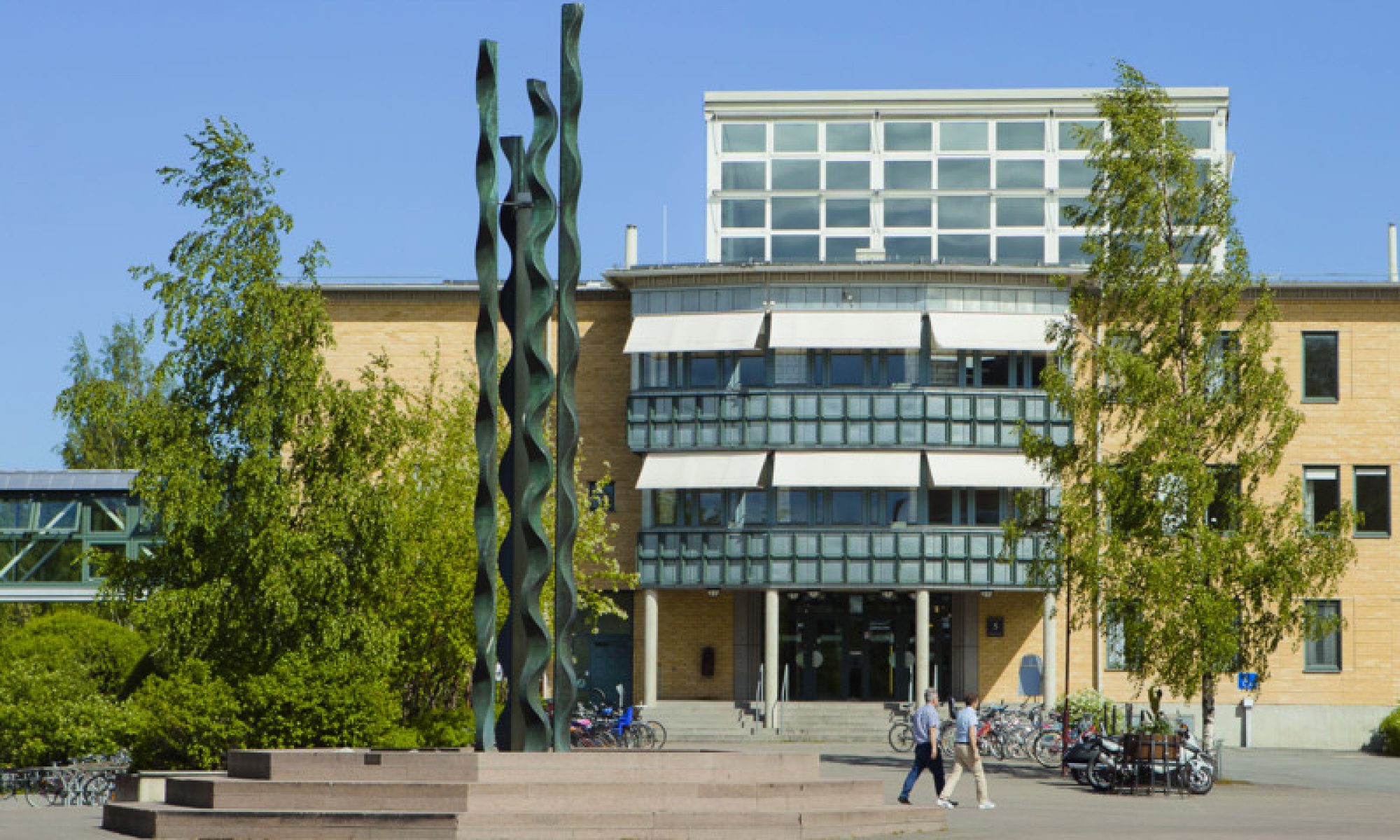Welcome to the workshop on AI@UmU and Society. The workshop is the second, organized as part of the “AI Competence for Sweden” initiative. The workshop is open to you who are a researcher or teacher at Umeå University, or are working in an organisation that is interested in developing collaboration with Umeå University on research or education related to AI.
The workshop will be held on Friday, December 14th, 8.30-14.30, at MIT-Place in the MIT Building.
The workshop is for you who:
- want to join in forming tomorrow’s AI at Umeå University,
- want to know more about ongoing national and international AI initiatives that Umeå University is part of,
- want to know how your organisation can collaborate with Umeå University on AI-topics,
- want to meet and learn what is ongoing in the field of artificial intelligence at Umeå University,
- want to participate in initiating a cross-faculty and cross-organisational discussion on how research and education on AI foundations, their applications and integration into society can be further expanded through interdisciplinary collaborations.
The day will contain presentations, inspiration talks and round table discussions. We invite researchers and teachers employed at Umeå University to give a brief presentation of the following:
- What AI or AI-related research are you/your group/your department pursuing, and/or what AI-related courses do you/your group/your department give
- What are the main research problems?
- What is lacking at Umeå University to advance the field?
- What specific educational effort(s) relating to AI do you find most urgent?
The questions are intentionally broad in order to collect a broad range of aspects as a first inventory.
We also invite representatives from industry and other organisations in society to present their needs and visions relating to AI education and research.
Sign up no later than December 7. Use this link to sign up.
When signing up, specify whether you would like to give a presentation. You will receive a notification shortly after October 7 whether you will be able to present, since the number of slots are limited.
Presentations should be sent to Kai-Florian Richter by December 11 at the latest.
For questions contact Kai-Florian Richter.
Program
8.00-8.30 Registration and coffee
8.30-9.00 Welcome and information about AI initiatives in Sweden and
beyond. Helena Lindgren, Umeå University
Umeå Municipality’s Industry Agenda. Marie Gidlund, Umeå
Municipality
9.00-10.00 Explainable AI and Intelligent Products – Kary Främling,
Computing Science
Tieto and AI – Tobias Sundqvist, Tieto
Mixing AI and HCI – Easy and Complex Interaction – Mikael
Wiberg, Informatics
Digital forensics: evidence analysis via intelligent systems –
Juan Carlos Nieves, Computing Science
What would it take for a robot to be conscious? Pär
Sundström, Dept Historical, Philosophical and Religious Studies
Persuasive Technologies – Helena Lindgren, Computing Science
10.00-10.30 Coffee
10.30-11.20 Inspiration talk: “Real AI is Social AI” – Frank Dignum, Utrecht
University, Netherlands (abstract below)
11.20-11.50 Teaching natural language processing – Henrik Björklund,
Computing Science
HumLab Talks AI – Per Holm, HumLab
AI in IceLab – Martin Rosvall, IceLab
11.50-12.50 Mingle lunch and coffee
12.50-13.40 Inspiration talk: “Co-Designing with Algorithms” – Elisa
Giaccardi, Industrial Design Engineering, TU Delft, Netherlands,
Umeå Institute of Design, Umeå University, Sweden
(abstract below)
13.40-14.00 Bayesian networks for probabilistic inferences – Priyantha
Wijayatunga, Statistics
Intelligent agents and a new social order – Victor Kaptelinin,
Informatics
14.00-14.30 Discussion and summary
Welcome!
The AI Sweden – UmU work group
The AI@UmU workshop group: Kai-Florian Richter, Virginia Dignum, Juan Carlos Nieves, Mikael Hansson and Helena Lindgren

“Real AI is Social AI” Frank Dignum, Utrecht University, Netherlands
When AI is taking decisions with huge consequences, like with medical diagnoses, mortgages, autonomous driving there is often not one optimal solution, but we have to carefully determine what optimality means in these contexts. We need decisions that are acceptable, which means that the AI system needs to be socially aware and socially capable. This leads to new technical challenges and solutions. When done properly it also leads to new opportunities for AI systems in industry and society.
“Co-Designing with Algorithms”, Elisa Giaccardi, Industrial Design Engineering, TU Delft, Netherlands, Umeå Institute of Design, Umeå University, Sweden
In this talk, I want to share the lessons learnt from the Resourceful Ageing project funded by the Netherlands Organisation for Scientific Research (NWO) under the Research through Design (RTD) program in 2016-2018. The project brought together interaction designers, machine learning experts, anthropologists, and professional practitioners from Delft University of Technology, Eindhoven University of Technology, Avans University of Applied Sciences and Philips Design with the goal of researching and designing solutions that could empower older people to age resourcefully. In this talk, I will share what we have learned about infrastructuring multidisciplinary collaboration in data-enabled design practice, leveraging the generative potential of machine learning, and designing Internet of Things technology as ‘resource’ rather than as ‘intervention’.
I will also explain how our final design – Connected Resources – uses machine learning to celebrate older people’s ingenuity and vitality. Instead of enforcing compliance to normative behaviour through technology, Connected Resources empower older people to negotiate their desired level of independence according to always-changing personal circumstances and social norms. This design has been recently awarded a NGI Award 2019. NGI (Next Generation Internet) is Europe’s new approach to creating a more human-centric internet. It is a European Commission initiative that recognizes and rewards outstanding contributions to a better digital life. The overall mission of the Next Generation Internet initiative is to re-imagine and re-engineer the Internet for the third millennium and beyond. NGI Awards is initiated and supported by the European Union and The Internet of Things Council among others.
Link to project report.
